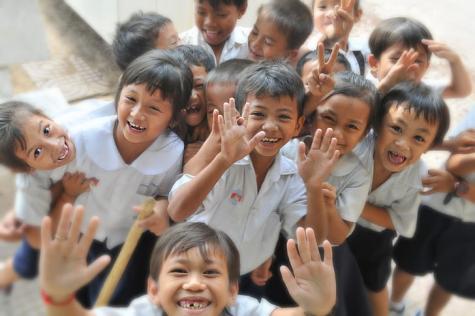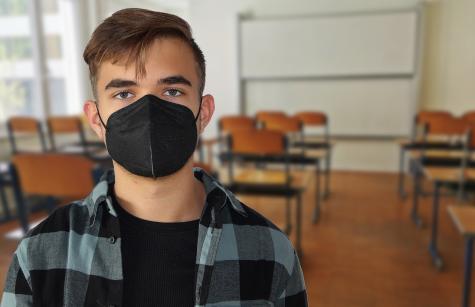Schools

➡️️ Guide to Schools & Education
Better World Info's essential resource on education is an invaluable tool for schools, educators, parents, and pupils. Discover over 1,000 links to important topics including the right to education, inequality, the impact of war, lack of access to quality teachers and infrastructure, and the importance of education in shaping the adults of tomorrow.
Jump straight into the guide here ➡️ Schools
Explore essential topics including:
-
Teachers guide
-
Peace, environmental, and health education
Across the world, 8% of children do not attend school – the equivalent of 58.4 million children. Sub-Saharan Africa and South Asia are by far the worst regions for access to basic education. The impacts on children are immense and far-reaching. The unschooled are much less likely to have the skills to improve their social and economic situation, they have poorer health, shorter life expectancies, lower salaries, higher levels of unemployment, and are more likely to be disengaged politically.
To help measure the performance of education systems worldwide and enable international comparison the PISA Study is conducted every three years by the OECD. It measures the knowledge and skills of 15-year-old students in math, science, and literacy.
There are still large differences in educational opportunities and resources between different schools and social classes. According to the latest PISA study, 72% of 15-year-old students achieved a basic level of 2 or higher in mathematics, while only 64% and 68% achieved this level in reading and science, respectively.
Inclusive education for all is Sustainable Development Goal 4. Like many of the other goals, progress has stalled and is failing. Targets to enrol children in school, primary completion rates, and access to trained teachers are all disastrously off track.
One of the main barriers to education is conflict. Half of the world's children out of school live in conflict regions including Syria, Yemen, Sudan, and Nigeria. Educational inequality, poverty, and lack of resources are other significant factors.
"Knowledge is power. Information is liberating. Education is the premise of progress in every society, in every family." - Kofi Annan
German speakers can visit our partner site, Bessere Welt Info, for further resources on Schulen in German.

Alternative Education – Breaking Free From Traditional Teaching
As schools, approaches to learning, and the needs of children have changed over the years, many parents have found themselves searching for alternatives outside of mainstream education.
Based on a system of testing, memory skills, and league tables, mass-produced learning was developed to deliver a one-size-fits-all model to children from all backgrounds and walks of life. Conforming to the system and competing against your classmate's academic success has become the norm.
Critics state that traditional methods stifle young people's desire for individualism, spontaneity, curiosity, play, and creativity. These characteristics are often overlooked in underfunded, understaffed schools, which are filled beyond capacity as they are turned into for-profit businesses.
Schools should be more than just a place to acquire knowledge. The planet is rapidly evolving – digitalisation, globalisation, climate change, migration, conflict, increasing economic inequality, and many other factors must be considered when preparing young minds for today's world.
Alternative forms of schools have been gaining popularity as they attempt to fill this education gap. Schools such as Montessori, Waldorf, forest schools, and private schools are popular alternatives that emphasise holistic education and students' individual development, as well as encourage creative thinking and independence.

Bullying and School Violence
Violence in schools is a serious problem that includes both physical and verbal assault. Bullying, student violence, and even violence against teachers is a worrying phenomenon. A 2019 report by the CDC revealed that one in five high school students reported being bullied on school property in the last year.
Shockingly, more than 7% of high school students had been threatened or injured with a weapon on school property one or more times during the previous 12 months. Students are missing school due to safety fears on school property or on their way to or from the grounds.
The U.S. is experiencing an epidemic of gun-related incidents in schools. Since the 1999 shooting at Columbine High School, more than 338,000 students in the U.S. have experienced gun violence at school. America's broader rise in gun violence has been reflected in its schools. Heartbreakingly, 2022 saw 46 school shootings in just one academic year.
Other than the obvious emotional trauma, the occurrence of these events often leads to poor learning outcomes. Black and Hispanic students, those from disadvantaged backgrounds, and LGBTQI+ students are at much higher risk of being victimised by gun violence.
Preventive measures are crucial to combat violence in schools. Violence prevention programmes, stricter laws on gun control, anonymous reporting systems, student leadership, social inclusion, school counselling, physical security measures, emergency plans, zero-tolerance policies, and improved education on the early warning signs of violence can go a long way to prevent both tragedy and disruption to students' education.

The Impact of Coronavirus on Schools
Although schools have now returned to normal, the lasting effects of Coronavirus on children's education lingers. Governments, schools and teachers, having never dealt with anything of this nature, were left entirely unprepared and disorganised.
Children were one of the biggest victims of the pandemic. National educational shutdowns affected nearly 1.6 billion students in 200 countries - 94% of the student population. Policies varied widely based on each country's wealth.
At least 463 million children worldwide were unable to access remote learning during COVID-19 school closures. Students from disadvantaged backgrounds were disproportionately affected. A report by the Nuffield Foundation revealed that the impact of COVID-19 will affect exam results well into the 2030s.
The World Bank estimates that this generation of children could lose a combined total of $21 trillion in lifetime earnings. The mental health effects on young people were also dramatic. Symptoms of depression and PTSD significantly increased in people aged between 7 and 12 years compared to immediately before the pandemic. Historically, school closures in developing countries have led to an increase in child marriage and child labour. Research on this is yet to be conducted.
The inability to provide in-person teaching led to the adoption of distance learning and online education. Students and teachers had to adjust to new technologies as social interaction and hands-on learning became limited.
The Digitalisation of Schools
The covid-19 pandemic helped speed up the trend towards the digitalisation of classrooms. The use of technology by teachers and students has redefined educational norms.
Technology allows students greater flexibility, incorporates different learning styles and needs, can make learning more fun and engaging, increases accessibility, improves digital literacy, makes learning more inclusive, and provides unlimited access to resources and expertise (such as ours!)
The popularity of online learning has grown exponentially in post-pandemic years, and as such, the global e-learning market share is projected to hit the $1 trillion mark by 2027.

Schools for a Better World
Our world is changing - fast. Today's students will face a unique set of problems that other generations have not only created but failed to resolve. Issues like the climate crisis, biodiversity loss, the plastics crisis, future pandemics, sustainability, gender equality, food security, ageing populations, the impact of artificial intelligence, rising geopolitical tensions, dwindling resources, poverty, the refugee crisis, cybersecurity, disinformation, and authoritarianism are all very real concerns.
Schools are essential in ensuring that students are prepared for this world and have the skills and knowledge to navigate it with peace, sustainability, ethics, and cooperation at their core.
A more comprehensive and holistic education system that embraces topics such as environmental, human rights, peace, and civic education is essential to ensure our planet's future well-being and its inhabitants.
Better World Info is an excellent resource for schools, teachers, and pupils interested in creating a better world for future generations!
Author: Rachael Mellor 13.12.24, licensed under CC BY-NC-SA 4.0
For more information on Schools see below ⬇️
Info on Schools
- International[36]
- For Teachers & Pupils[36]
- For Teachers[81]
- For Pupils[8]
- Cyber Bullying[51]
- School Violence[23]
- School Subjects[29]
- Alternative Schools[258]
- Home Education[153]
- Peace Education
- Environmental Education
- Health Education[40]
- Gender Education[146]
- For-Profit Schools (USA)[32]
- Military Education & Recruitment[42]
- School Book Companies[11]
- STEM Education[32]
- Open Schools[18]
- Civic Education in Schools[34]
- Digitalisation in Schools[84]
- Cell Phone Ban[7]